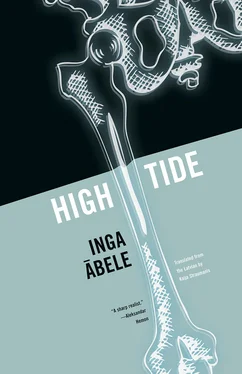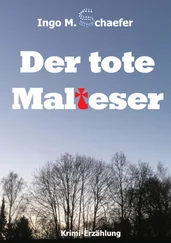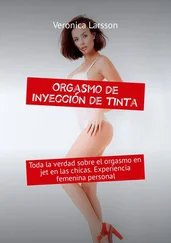But, Ieva says, fuck all of that. Precisely because on that night with Aksels at the balcony door, Ieva cries. She cares fuck-all about the movies. Even if hordes of gorgeous, magnificent actresses had pornographically poured their tears, snot, and spit in front of the camera, knowing that the lens was capturing every movement of even the tiniest movement of the muscles on their faces — even then, Ieva would have cried one more time. All she thinks about is how someone wants to take the heavy, slumbering head in her lap away from her.
Of course anything can happen in life, but not all because of some shithead black guy! Not because of that idiot Ningela, who puttered around behind the counters at Polārs, wrapped in her sickly-sweet renditions of Indian perfumes. Not even because of the bar itself — the shittiest of all bars, the dregs of the Āgenskalns barrel, that dump. Spending time in there, no matter the season or time of day, always gave you the overwhelming feeling of sitting deep underground. Or rather — at rock bottom. The stale smell of cigarettes, worn-out couches, a TV somewhere in the background soundlessly playing MTV while the audio system up front blasts something entirely different… The stale, cigarette-like regulars, who call themselves artists or life artists, but who are really just broken clocks, each bullshitting and babbling about the time they were actually meant to stop in.
All she wanted to do was buy some weed from Ningela’s daughter, but that black shit had come out of nowhere and thrown Aksels down onto the ice. Well, and then his hip got banged up, and then misfortune quickly started to fester. It’s so stupid! Not like this, not like this — Ieva begs as she cries, her tears rolling down her face in the dark and into Aksels’s hair.
The next morning Ieva cries differently, but again about Aksels. Then the next night about something else entirely, but still about Aksels. But on the next night — she doesn’t even cry anymore, just sits thinking nothing, shot up on diazepam, and grinding her teeth. Making a game of it, tensing and relaxing the muscles in her jaw. This is acclimation, you get there without even realizing it. And already thinking ahead. Thinking ahead. It’s a horrible betrayal. To think ahead about Aksels. Who’s left on the side of the road like a broken clock, while the tram whips past and carries her farther away. Away.
Ieva says:
“But what do you mean — don’t let them take me?”
Aksels smiles crookedly:
“Remember Sid and Nancy?”
Aksels’s idea slowly crystalizes in Ieva’s mind, and when it finally hits her it scares her beyond reason. Her eyes go wide:
“You want — ME to?”
“Yes, you. Who else? Listen, Ieva, I haven’t lived long, but I’ve lived how I’ve wanted. Seriously. And I want to die how I want.”
Ieva leaves the room and slams the door.
“Forget it! What are you thinking? I’m not capable of murder!”
The pain wakes Aksels up in the middle of the night. He’s convulsing like he’s been thrown on high voltage wires. After he takes all the medication he can, he lies limp and moaning. Ieva changes his sweaty shirts and sheets, four sets over the course of the night. They’re soaked through.
Toward morning Aksels says:
“Please, shoot me with a shotgun. From fifteen paces.”
Ieva cries.
“I can’t shoot you like some animal!”
“Please. If you love me.”
Ieva screams:
“Then I’ve never loved you!”
Aksels screws up his face. Maybe it’s a smile. He stares at the ceiling and says:
“Make anarchy your mother. Create as much chaos and confusion as is in your power, but don’t let them take you alive.”
Ieva presses her hands over her ears.
Eventually Aksels convinces her to drive out to the countryside.
Sid and Nancy in room 100 of the Hotel Chelsea. An eternal secret only for the two of them. This time Sid will die. Sid fills Nancy’s head with words, about how he wants to lie down by the birch trees at the far end of the pasture, where the first buttercups of summer always bloom. No one will know. It’ll be their secret.
Ieva has never been able to imagine this kind of helplessness, hasn’t even been able to feel it. She doesn’t want to accept Aksels’s illness. She should, because there’s no way out — no way out! There are moments when Ieva’s mind blazes magnificently clear and fierce like a newly sharpened knife. She understands that there’s no way out, just a life continued without Aksels.
Life hasn’t asked for Ieva’s thoughts on any of the coldhearted things it has to offer. It is what it is. And that’s that. She’s never wanted any of it. Aren’t they fantastic, elegantly sadistic gifts for a single person who has nerves, feelings, a mind, and heart? How can she accept all of them, she doesn’t have enough hands! Generously, lavishly, life — thank you for showing me your real face so soon.
If all this was about her, Ieva would care less. But the life of one person, a whole person, stands before her. Like something untouchable has caressed her, something flowing out from an icon and through the stained glass windows of a church.
She has to accept it.
Crystal clear winter days hold steady in the skies, blue as seals with numbers on their haunches, slowly digesting time, my forehead is hot, Ieva thinks, thinks, thinks. She can’t think of anything.
Ieva senses that she could find salvation in faith, and watches the sky. Sunsets are amazing, but nothing more. The sky is silent.
And Aksels is still here beside her. They have to get ready. Ieva’s forehead is hot. As long as she keeps busy she can stay calm. But when she’s by herself, she cries.
Aksels says:
“You’re too attached. That’s your flaw.”
Ieva’s so offended she doesn’t know what to say. She even blushes.
She cries:
“Flaw! Flaw?”
Aksels says:
“You actually enjoy suffering. You have a thing for it. You’re happy now that you have something to suffer over.”
He says:
“Me, I’m not attached to anyone. There’s no one I’d cry over if they died.”
It’s an unholy nightmare, all of these conversations. Chaos. Lies. Carelessness, fleeing. Pretending the whole time like they’re talking about someone else, not about themselves. Ieva’s bloodshot eyes and the worry that she feels nothing. Everything’s happening so fast.
One night when Aksels has fallen asleep on the couch, Ieva sneaks over to him with scissors. She looks at his face for a moment. Then she gathers her courage and quickly cuts a lock of his hair. She thinks she’s pulled it off, and turns quickly to leave the room. At the door she looks back — Aksels is watching her. He sees her, silently. The only movement is in his eyes as his pupils contract and dilate.
Ieva opens a window.
“What fresh air!”
The air downtown is terrible, but Ieva thinks it’s good enough just because it’s air.
Aksels wants weed.
Ieva doesn’t give it to him, hides it. He gets angry.
Ieva asks:
“Do you even know why you’re dying?”
Topics like these bore Aksels, he doesn’t want to talk about them.
She says:
“You’re dying because you’ve lost your mind. From all this shit.”
Aksels shakes his head.
She says:
“Yeah, you lost your mind. There’s nothing worse than losing your mind. And now you’re dying.”
Aksels says:
“It’s my choice. Give it to me.”
“I’m going to be all alone!”
“You’re only thinking of yourself!”
Ieva’s eyes bulge from their sockets in grief.
“And you’re only thinking of yourself!”
Aksels says:
“Everyone thinks only of themselves. It’s how it should be. Give me the weed. It numbs the pain.”
Читать дальше












